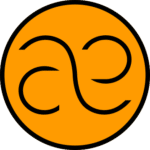Control, or lack there of
I feel that sometimes I am very lucky to come from a filmmaking background, not only for the creative visual and narrative knowledge that comes with it but also for the knowledge that nothing can ever be perfect if you wish the world to see it.
Perhaps many of us do forget it, and I will admit that at times I forget as well, but you need to accept that you can’t control everything. An analogy from the film world is that when you go into principal photography, the bit where you actually get to film your story, you can have the best-laid plans, but unfortunately reality takes over then. Not everything may go they you expected it, and at that point, its best to let go of the rigid image you had, and instead choose for flexibility.
In the film world, you then shoot and grab what you can, improvise the rest (all best on the plan, of course, winging it completely is not a path success either). And even if everything did go mostly according to plan, when you’re in the editing suite, watching your footage back, remember to yet again let go. You need to be ruthless, get rid of that which doesn’t work, even if it is the greatest shot you’ve ever made, if it doesn’t work, remove it.
With many projects, and this comes back to why development can take so much time, just because of you like that aspect, doesn’t mean its right for the project. As creators of experiences, I was reminded recently, we must always remember the client, the customer, that individual that will actually experience it. Just because I like that mechanic, or that visual, or that puzzle, doesn’t mean the person I’m making it for will. So, remember to be objective and ruthless, as much as you can be.
Beg, borrow, steal
I hope though I’m never entirely sure, that every creative industry is a little bit like every other creative industry, in that if it works, beg, borrow or steal it for yourself. When I say steal, I don’t mean literally, or plagiarise, but if a story, model, process, etc… works, use that rather than trying to create one of your own, and in the process losing valuable time.
Through the year, I’ve had the opportunity to learn from various inspirational people, and to attend masterclass workshops with leaders in the gamification industry. And thanks to these I’ve gained tools that have improved my own workflows and the quality that I am able to deliver.
I suppose its one of those ingrained aspects from my film background, if that visual style or narrative mechanic works, why not use it for yourself in your own production. As the two adages state: Don’t Reinvent the Wheel and If ain’t broke, don’t fix it.


